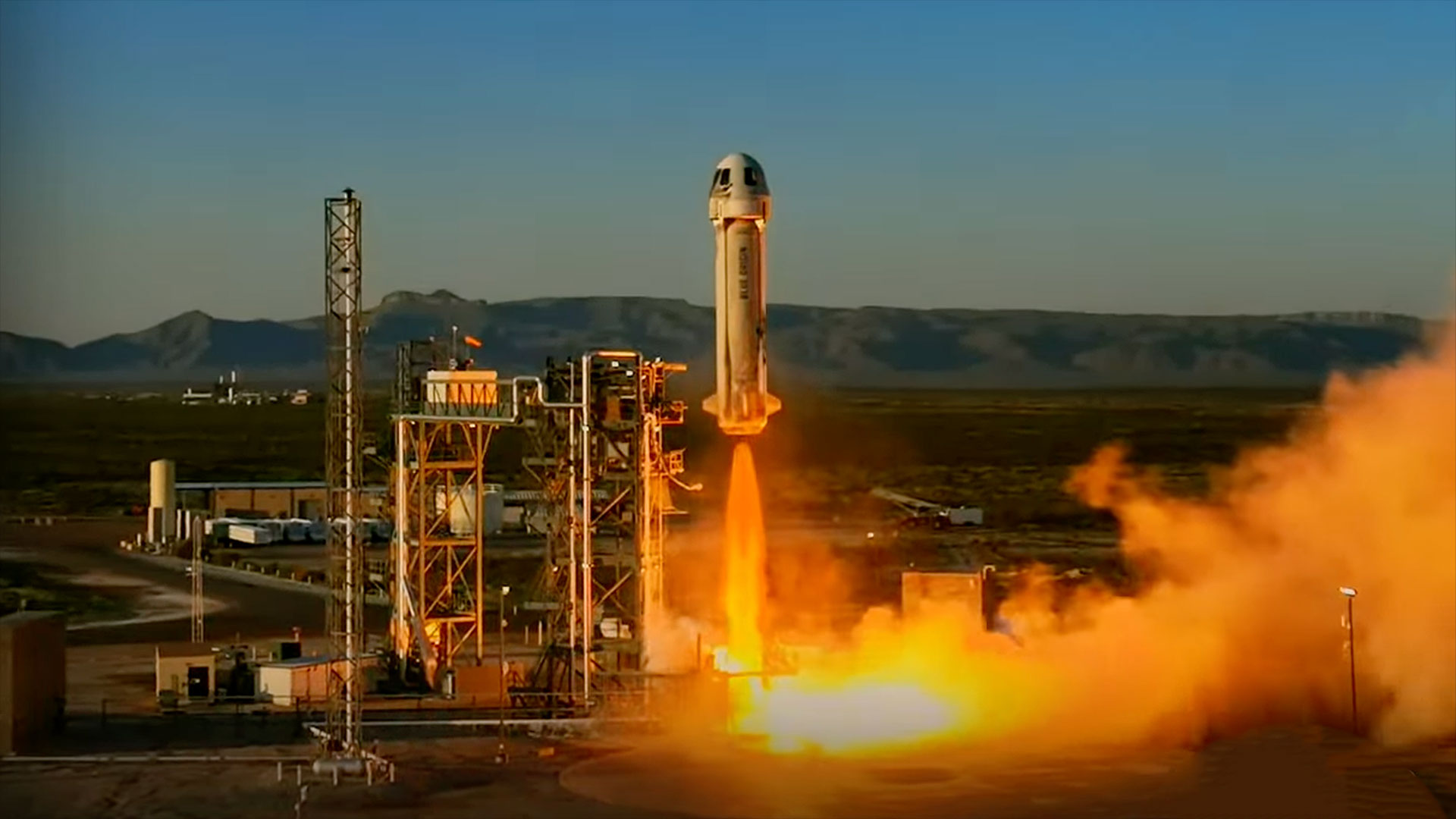Martian Missive: 'Others Will Follow' Film Explores Last Message from Mars
A new sci-fi short explores the message that the (fictional) last human to survive a Mars mission sends back to Earth.
As shown in a short sci-fi video, "Others Will Follow" (uploaded to Vimeo), a spacecraft arriving at the Red Planet catastrophically breaks apart. Viewers don't see what happens to the rest of the crew, but presumably they have died. This leaves behind one astronaut, who was inspired by the Apollo 11 moon landing mission in 1969 to fly into space.
"Fate has ordained that the men and women who went to Mars in peace will stay on Mars to rest in peace," an unnamed television host says in the video, echoing the words of a never-broadcast speech by President Richard Nixon that was written in case the Apollo 11 crew never made it back to Earth. ["Others Will Follow": Behind-the-Scenes Photos]
The stranded astronaut is alone on Mars and unable to send any messages to Earth, because he is out of range. But then he comes across a solution; we won't spoil the ending for you, but let's just say it's both hopeful and chilling.
"As I was writing the short, I was thinking about how NASA had parked its spaceships in museums in the decades since the contingency speech was written. Most humans alive today didn't exist the last time humanity left low Earth orbit, and my generation is without a moon shot," filmmaker Andrew Finch, who made the short, wrote in an email to Space.com.
"I wanted to make something that would outline the importance of human spaceflight by imagining a brute-force mission to Mars in the early 2000s that, despite disastrous circumstances, still manages to pass the torch of inspiration," he added.
Human missions to Mars were popularized, in part, by the 2015 Hollywood movie "The Martian," which coincidentally also portrayed an astronaut left behind alone on the Red Planet. In that case, however, the crew abandoned the astronaut because the others assumed he had died. As "The Martian" shows, the stranded explorer, Mark Watney, was very much alive — and had several ideas for staying alive until a rescue mission came.
Breaking space news, the latest updates on rocket launches, skywatching events and more!
NASA has not yet sent humans to Mars, of course, but the agency has said it plans to do so in the 2030s. Other groups and individuals — such as Russia, China, Mars One and Elon Musk, the founder of SpaceX — have also outlined plans to bring humans to the Red Planet.
Follow us @Spacedotcom, Facebook and Google+. Original article on Space.com.

Elizabeth Howell (she/her), Ph.D., was a staff writer in the spaceflight channel between 2022 and 2024 specializing in Canadian space news. She was contributing writer for Space.com for 10 years from 2012 to 2024. Elizabeth's reporting includes multiple exclusives with the White House, leading world coverage about a lost-and-found space tomato on the International Space Station, witnessing five human spaceflight launches on two continents, flying parabolic, working inside a spacesuit, and participating in a simulated Mars mission. Her latest book, "Why Am I Taller?" (ECW Press, 2022) is co-written with astronaut Dave Williams.
